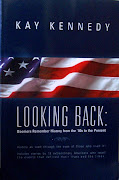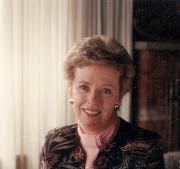The boomers would become known as the “Make Love, Not War” generation as the ‘60s evolved from frightening nuclear crises and an assassination, to active involvement by boomers, then to dropping-out of society.
To say all boomers became involved in changing society would not be true. Many followed the paths of their more complacent parents, and showed mild to no interest in the rapidly changing political climate. Many others scorned the protestors. But a large number were frightened, stunned, embarrassed by the status quo, and then driven to take an active role in changing the world. While this movement looked huge as it was shown on television, no one knows the actual number of boomers and others who became involved in the counterculture and anti-war movement, or how involved they were.
Still, this movement helped end a terrible, destructive war that should never have been entered into. From the beginning of U.S. involvement, President Eisenhower had stated that French involvement in the conflict was hopeless. Yet, that didn’t stop him from sending aid to the French, including money and military advisors. That finally led to thousands of young American soldiers fighting and dying in the jungles and rice paddies. Why? How? The first two Americans died in July, 1959 in an attack 20 miles north of Saigon.
As protests continued and grew in size and scope, it became politically imperative for some politicians to represent their cause. Robert F. Kennedy, younger brother of President John F. Kennedy who had served as Attorney General under both Kennedy and Johnson, and then elected a senator from New York, decided to run as an anti-war presidential candidate in 1968. As he celebrated his victory in the California democratic primary before heading to the democratic convention in Chicago, he was shot by assassin Sirhan B. Sirhan. The next day, he died, and with him the hopes of millions who counted on him to be the president who would bring peace to the country.
But two months before Kennedy’s death, Dr. Martin Luther King was shot and killed in Memphis, Tennessee where he had gone to support striking sanitation workers. His assassination stunned the nation and demoralized those fighting in the civil rights movement, most of who were also involved in the anti-war movement. Dr. King had called the United States “the greatest purveyor of violence in the world,” as he spoke out against U.S. policy in Vietnam and suggested a merger of the anti-war and civil rights movement. Yet, he preached non-violence, and was the leading spokesman for the civil rights movement.
The boomer generation involved in marching for the rights of those less fortunate, including young men drafted into the military and forced to fight an unpopular war, watched as their hopes and dreams were buried along with their two leaders. Is it any wonder that many were angry and confused, and subsequently turned to drugs to numb their pain?
Communal living and turning their backs on society seemed the only answer to their pain. Participating in society seemed hopeless, so why continue to support it?
Subscribe to:
Post Comments (Atom)


1 comment:
Interesting to know.
Post a Comment